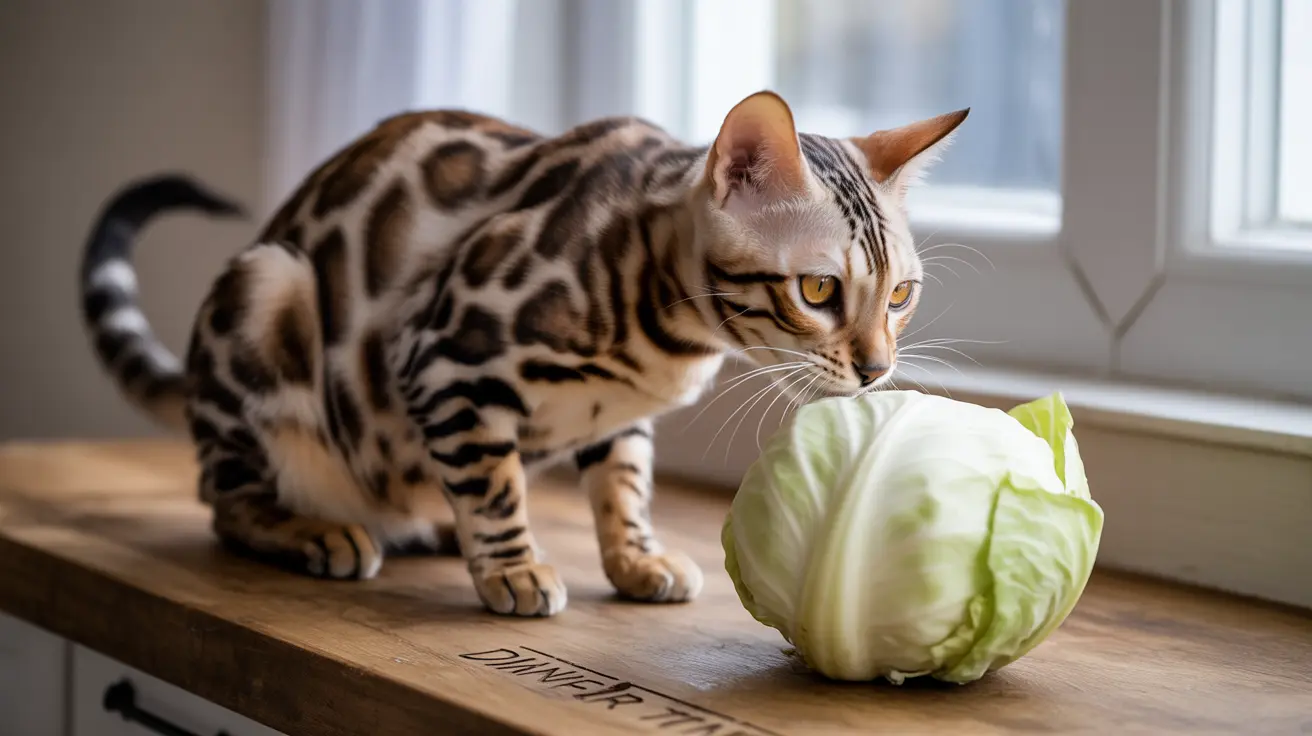Safety and Preparation Guidelines
When it comes to feeding cabbage to cats, proper preparation is crucial. Cats should only consume thoroughly cooked cabbage, as raw cabbage can be difficult to digest and may contain compounds that interfere with thyroid function.
Always serve plain, steamed, or boiled cabbage without any seasonings, oils, or additives. Common ingredients like garlic, onions, and salt can be toxic to cats and must be strictly avoided.
Portion Control and Frequency
Moderation is key when feeding cabbage to cats. A safe serving size is typically one to two teaspoons of cooked cabbage as an occasional treat, or one boiled leaf every other week at most. Treats, including vegetables like cabbage, should never exceed 10% of your cat's daily food intake.
Health Benefits and Limitations
While cabbage contains various nutrients like vitamin K, vitamin C, and fiber, cats have limited ability to derive nutritional benefits from plant matter. Their digestive systems are specifically designed to process animal proteins rather than vegetables.
Potential Benefits:
- Low in calories and carbohydrates
- Contains some beneficial fiber for digestive health
- Provides variety in treat options
- May help with hydration due to high water content
Risks and Considerations
Despite being non-toxic, cabbage can pose certain risks to cats if not properly managed:
Digestive Issues
- Gas and bloating
- Potential diarrhea or constipation
- Stomach upset from excessive fiber
Other Concerns
- Thyroid function interference from raw cabbage
- Possible nutrient imbalance if overused
- Risk of choking on large pieces
Best Practices for Feeding Cabbage
Follow these guidelines when introducing cabbage to your cat:
- Always cook the cabbage thoroughly
- Start with tiny amounts to test tolerance
- Monitor for any adverse reactions
- Maintain it as an occasional treat only
- Ensure proper preparation without seasonings
The Role of Vegetables in a Cat's Diet
Remember that cats are obligate carnivores, meaning their primary nutritional needs must be met through animal-based proteins. Vegetables like cabbage should never replace proper cat food in their diet and should only serve as occasional supplements.
Frequently Asked Questions
Can cats safely eat cabbage, and should it be cooked or raw?
Cats can safely eat cabbage, but it must always be cooked. Raw cabbage is difficult to digest and contains compounds that could interfere with thyroid function. Always serve plain, cooked cabbage without any seasonings.
What are the potential health benefits and risks of feeding cabbage to my cat?
Benefits include low-calorie treat options and some fiber content, but risks include digestive upset, potential thyroid issues if fed raw, and possible nutrient imbalances if overfed. The benefits are limited as cats don't efficiently process plant matter.
How much cabbage is safe to give my cat without causing digestive problems?
Limit cabbage to 1-2 teaspoons of cooked cabbage as an occasional treat, or one boiled leaf every other week at most. Never exceed 10% of daily food intake for all treats combined.
Why is cabbage not a necessary part of a cat's diet despite being safe in small amounts?
Cats are obligate carnivores whose bodies are designed to derive nutrition primarily from animal proteins. While cabbage isn't harmful in small amounts, it doesn't provide essential nutrients that cats need and can't replace proper cat food.
What precautions should I take when introducing cabbage or other vegetables to my cat's diet?
Start with very small amounts, ensure proper cooking, avoid all seasonings, and monitor for any adverse reactions. Always consult with your veterinarian before introducing new foods, especially if your cat has existing health conditions.
Conclusion
While cats can have cabbage in small, properly prepared portions, it's important to remember that it should only be an occasional treat. Focus on providing your cat with a balanced, meat-based diet that meets their carnivorous nutritional needs, and consult with your veterinarian before making any significant changes to their diet.






